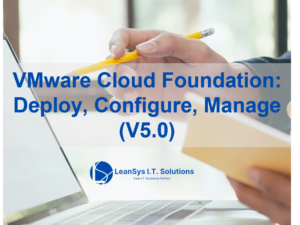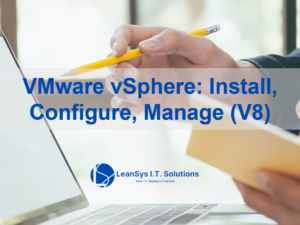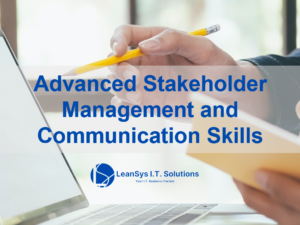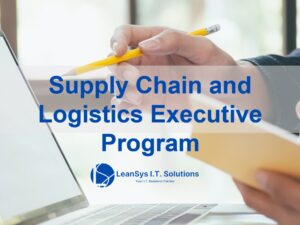Service Desk Manager (SDM)
- Description
- Reviews
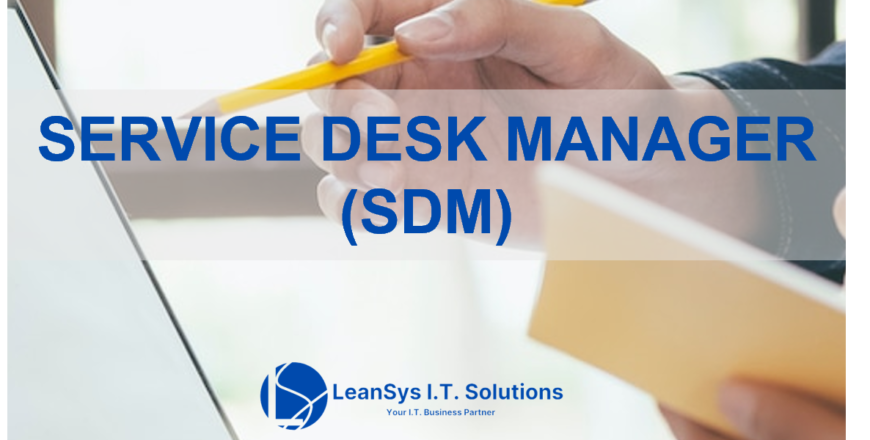
COURSE BRIEF
Course Name: SERVICE DESK MANAGER (SDM)
Duration: 4 Days
Delivery Method: Classroom / Virtual Instructor-Led training
Course Overview
Master the key areas of service desk management, gain the globally recognized Service Desk Manager qualification, and lead your team to lasting success.
The Service Desk Manager course provides a thorough understanding of service desk management and leads to a globally recognized professional qualification. This short video explains how this course will ensure you gain the skills needed to steer your service desk to success.
Course Objectives
Every delegate will need:
• Microsoft Windows based PC with broadband connection
• Internet Explorer 6.x or 7.x
• Browser with ActiveX controls and VBScript enabled
• You may need administrative permission on the PC to allow the
download of additional software
(if required)
• Headset or speaker for your telephone for comfort
• Quiet place to work
At the end of this course, delegates will gain:
• A thorough grounding in the skills required to lead, motivate, and
manage a service desk team.
• The complete service desk management toolkit covering strategy, leadership, employee development, relationship building, service improvement, ITSM processes, performance measurement, finance and tools and technologies.
• An internationally recognized SDM qualification.
• A new network of colleagues in similar roles from other organizations
Course Outline
This course contains everything that is essential to core roles and responsibilities of a successful Service Desk Manager:
• Defining strategic requirements: review the purpose, activities, and requirements of a successful service desk from a global perspective, discover the benefits of complying with industry standards and examine ethics in the service and support environment.
• Developing a strategic role: examine the requirements for creating an effective service desk strategy that underpins business goals, learn about the purpose and objectives of vision and missions statements, examine the benefits and challenges associated with various sourcing models, and review the objectives and activities of financial management.
• The role of the service desk manager: review the characteristics, skills and competencies required to be an effective service desk manager, review the roles and responsibilities of a service desk manager, discuss the reasons why we should promote the service desk, and review the key activities of a successful promotion campaign.
• Organizational change and project management: identify the elements of successful project management and the importance of building persuasive business cases, example the purpose and benefits of effective organizational change, identify opportunities for participation in strategic decision making, and review the knowledge requirements to build good strategic awareness.
• Teamwork and communication: review the characteristics of effective teams, examine the importance of excellent communication skills from a management perspective, learn the requirements of effective presentation skills, and enhance listening, information gathering and negotiating techniques.
• Staff recruitment, retention & development: examine the requirements for effective recruitment strategies, review the features and benefits of a structured and on-going approach to induction, training and development, and explore the behaviors required to retain staff, maintain effective working relationships and address individual performance issues
• Management and leadership: review the activities of an effective manager and an effective leader, identify the elements of successful planning and coordination activities, and examine the benefits of and how to achieve motivated teams.
• Resilience: examine the importance of emotional resilience, recognizing signs of positive and negative stress in yourself and your staff, and effective stress management.
• Effective management of resources: examine the challenges and benefits of commonly used support delivery methods and technologies, explore the benefits of workforce management and resource planning models, and discover the challenges and benefits of adopting self-service.
• AI and automation: identify the benefits and challenges of increasing automation and AI opportunities within the workplace and explore common examples of rules-based AI and neural networks.
• IT service management: explore IT service management and its objectives, recognize the difference between a practice, a process, and a procedure, identify the need to effective practices, processes and procedures and the importance of following them, and discover ITIL 4 practices and their purpose and place within the service desk environment.
• Quality assurance activities: review the purpose and objectives of a comprehensive quality assurance program, identify common quality assurance practices, examine the purpose, benefits, and methods of interaction monitoring, and explore the role of benchmarking in the service desk environment.
• Managing the customer experience: discover the importance of managing the customer experience and the need for a coherent approach, identify opportunities for capturing feedback, and learn how to use feedback effectively in decision making.
• Management information & performance results: examine the relationship between critical success factors (CSFs), key performance indicators (KPIs) and metrics, and identify a range of service desk metrics and their success criteria.

